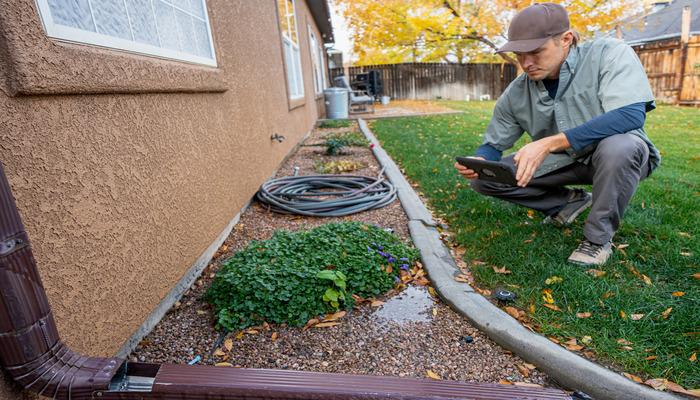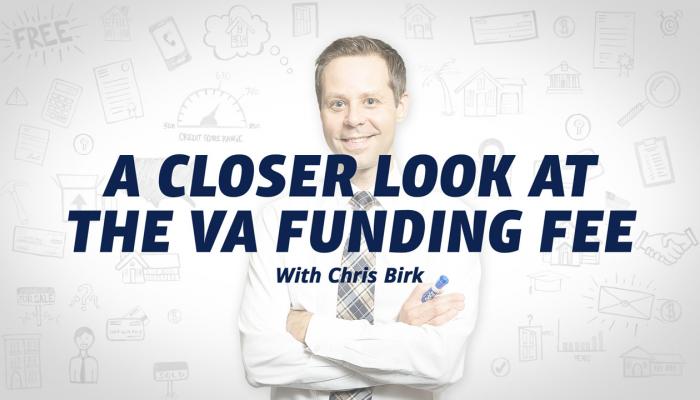While the VA loan process consists of multiple steps, the appraisal process can prove the most frustrating for some service members.
The VA utilizes a set of inspection requirements that must be addressed before a loan can receive the agency’s guarantee. Those MPRs cover a range of important things and are in place to ensure the safety and health of military home buyers.
What Will Fail a VA Appraisal?
A home will fail the VA appraisal if it does not meet VA Minimum Property Requirements (MPRs). To be eligible for VA financing, a property must meet MPRs. These requirements help make sure the home is not only safe, but move-in ready for the Veteran.
The VA wants homes to be ready to live in, with minimal repairs or work necessary. In fact, major repairs or health and safety issues have to be resolved before a loan can close.
Out of the gate, there are some major issues that can spell trouble for a VA appraisal. Here’s a look at five common ones.
Insufficient Heating
Homes that do not have adequate heating systems will never pass the VA appraisal. For a home to be approved there must be an efficient and acceptable source of heat that can provide residents with a comfortable living condition.
For this reason, homes that employ the use of a wood stove as the main heat source must have a secondary heating system that can maintain a minimum temperature of 50 degrees in plumbing areas of the home.
Inadequate Electrical Systems
Logically, for a home to be considered move-in ready, there must be working electricity. Appraisers will pay attention to whether a home provides acceptable electricity for lights and has the correct equipment to deliver results.
Roof in Disrepair
VA appraisers will check that there aren’t any holes in the roof that can lead to leaks and other defects. If left unchecked, these shortcomings can have a huge impact on the value of a home, often leaving homebuyers in a bind if small problems snowball into big ones as the house gets older.
VA Home Loan Payment Calculator
Broken Windows Lead to Broken Contracts
For most military members looking to buy a home, a broken window is the least of their worries. But VA appraisers feel otherwise—evaluating the home's exterior is critical.
Because broken windows affect both the heating bill and the home’s perception within the neighborhood, all broken windows must be repaired.
Termite and Pest Control Problems
Prior to approval, sellers must provide section one termite clearance, as termites can eliminate a home’s candidacy in the VA loan program. Additionally, appraisers must report any evidence of fungus growth or dry rot if found.
With all this in mind, there's plenty of hope. A good real estate agent can make a world of difference.
The VA has some strict, set-in-stone requirements and standards when it comes to appraising a veteran’s prospective home. Agents and sellers burned by the process often see it as punitive and arbitrary. But these measures are in place for a good reason.
The focus of the program is ensuring the health and safety of veterans and their families. The VA isn’t going to guarantee a loan on a home with major issues that could jeopardize the safety of its inhabitants.
Agents who know the VA’s method and process can help veterans avoid pitfalls and potential problems long before they arise.
For more information, contact a Veterans United Realty agent at 1-(800)-884-5560 or visit Veterans United Realty online.
Answer a few questions below to speak with a specialist about what your military service has earned you.
Related Posts
-
 VA Appraisal RequirementsExplore everything a homebuyer needs to know about the VA appraisal, including the process, property requirements, pitfalls, termite inspections, water quality checks, appraisal fees, challenging a low appraisal and the differences between the VA appraisal and a home inspection.
VA Appraisal RequirementsExplore everything a homebuyer needs to know about the VA appraisal, including the process, property requirements, pitfalls, termite inspections, water quality checks, appraisal fees, challenging a low appraisal and the differences between the VA appraisal and a home inspection. -
 2024 VA Funding Fee: Complete Explainer with Charts and ExemptionsThe VA funding fee is a governmental fee required for many VA borrowers. However, some Veterans are exempt, and the fee varies by VA loan usage and other factors. Here we explore the ins and outs of the VA funding fee, current charts, who's exempt and a handful of unique scenarios.
2024 VA Funding Fee: Complete Explainer with Charts and ExemptionsThe VA funding fee is a governmental fee required for many VA borrowers. However, some Veterans are exempt, and the fee varies by VA loan usage and other factors. Here we explore the ins and outs of the VA funding fee, current charts, who's exempt and a handful of unique scenarios.


